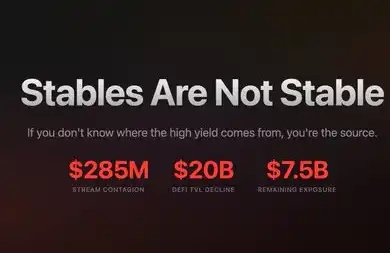ZKX: A perpetual contract protocol built on StarkNet.

Since DeFi Summer, the derivatives track, especially the perpetual contract, which is a key category, has not been able to produce breakthrough innovations that can rival Uniswap. Although dYdX has achieved decent trading volume, compared to the huge derivative trading volume of centralized platforms, on-chain perpetual contracts still appear relatively niche.
With the gradual maturity of Layer2 expansion solutions, especially the zk-rollup which has a more advantageous expansion efficiency, the industry's attempts to build on-chain perpetual contracts have not stopped. In this article, we will briefly introduce a chain-based perpetual contract protocol built on StarkNet: ZKX.
What are the problems with existing on-chain perpetual contract protocols?
The reason why current on-chain perpetual contract products still struggle to compete with centralized trading platforms is mainly due to their inability to solve the following issues.
First of all, the current on-chain derivatives heavily rely on oracle-provided data. However, the majority of oracles in the industry are highly centralized, and the price data they can provide is heavily dependent on the operation team of the oracle. Therefore, they can only provide limited trading pairs to the market.
In addition, currently, the process of listing for most on-chain derivative protocols is relatively closed. Many platforms often only provide a few mainstream trading pairs for users to trade, and they cannot achieve the kind of listing process that does not require permission like Uniswap. Finally, as everyone knows, the gas fees for the trading process are relatively high.
And ZKX has proposed its own targeted solution to these issues.
ZKX Protocol Solution
ZKX is built on the Ethereum Layer2 scaling solution StarkNet. Compared to other traditional on-chain derivative protocols such as dYdX and GMX, ZKX has several unique advantages:
1. Driven by DAO: ZKX uses DAO to manage the protocol and governs the various parameters of the protocol. Therefore, the project party can independently launch new perpetual contract trading pairs and provide corresponding incentives.
2. Decentralized Limit Order Book (DLOB): ZKX has built a permissionless node network, which will help it to scale better. The node network will directly provide price information to the exchange, thus greatly improving trading efficiency. In addition, ZKX maintains the trust and security of these node networks through consensus algorithms among its nodes, ensuring the security of the protocol. However, the funds in the trading platform are still held by users, so there is no asset custody risk, achieving better decentralization.
3. More reasonable funding rates: The optimized contract funding rates will be adjusted based on the volatility of the underlying assets, with higher-risk asset trading pairs receiving premiums to incentivize market participants to maintain order balance. Therefore, ZKX will be able to offer perpetual contract products with a better profit structure, inspired by famous option strategies such as butterfly options.
4. Facilitate liquidity mining incentives: DAOs, project teams, or project communities will be able to independently list new asset trading pairs and provide incentive measures;
5. L2 Extension: ZKX is built on top of the StarkNet network and will enjoy gas costs almost as low as those in Ethereum, greatly improving the efficiency of on-chain derivatives trading. Although the similar project dYdX is also built on StarkEx developed by StarkWare and has basically the same efficiency from the underlying architecture, it is difficult to take advantage of the composability of DeFi protocols due to the customized and relatively independent infrastructure of StarkEx. ZKX built on the general Rollup of StarkNet may be better able to leverage the composability of DeFi.
Team Background and Financing
ZKX was founded in 2021 and was first showcased as a competition entry at Devconnect Amsterdam. ZKX was founded by three partners, Eduard Jubany Tur, Naman Sehgal, and Vitaly Yakovlev. Prior to founding ZKX, Eduard and Naman held leadership positions at one of the world's top venture capital firms, SOSV.
On July 14, 2022, ZKX announced the completion of a $4.5 million financing round, with institutional investors such as StarkWare, Alameda Research, Huobi, AmberGroup, Crypto.com, as well as individual angel investors including Sandeep Nailwal, co-founder of Polygon, and Ashwin Ramachandran, general partner of DragonFly Capital.
Derivatives, especially perpetual contracts, are undoubtedly an important direction for the future development of DeFi. Currently, with the gradual resolution of the blockchain underlying scalability issues, ZKX is expected to achieve a better user experience on a more efficient infrastructure.
Welcome to join the official BlockBeats community:
Telegram Subscription Group: https://t.me/theblockbeats
Telegram Discussion Group: https://t.me/BlockBeats_App
Official Twitter Account: https://twitter.com/BlockBeatsAsia


 Forum
Forum Finance
Finance
 Specials
Specials
 On-chain Eco
On-chain Eco
 Entry
Entry
 Podcasts
Podcasts
 Activities
Activities








 0
0